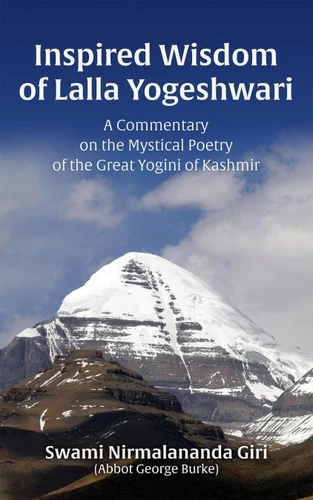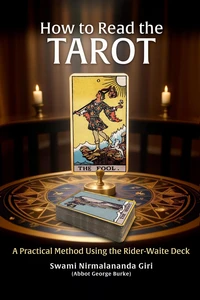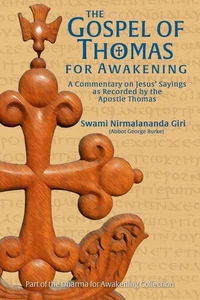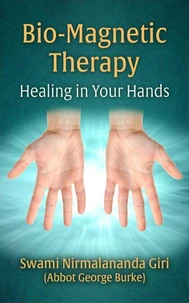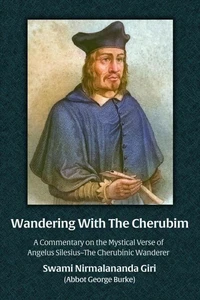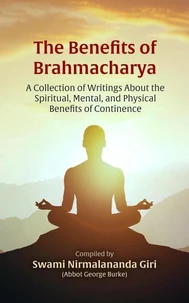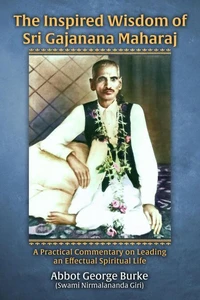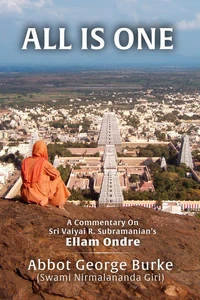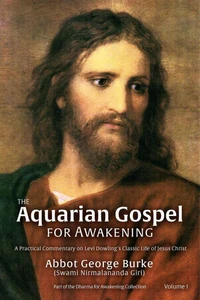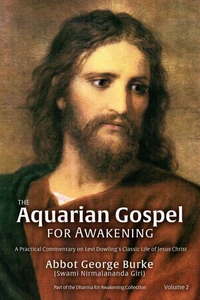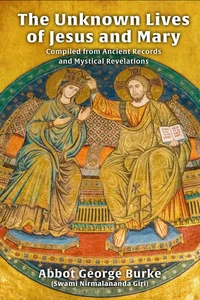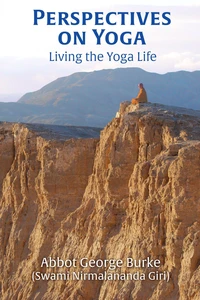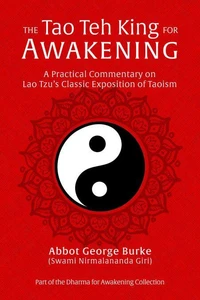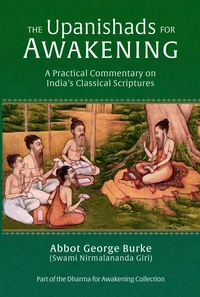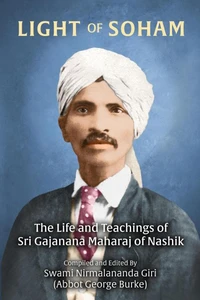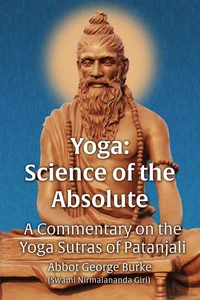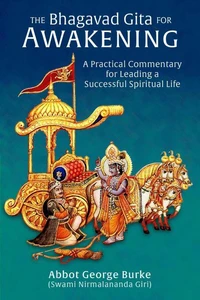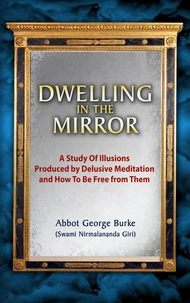The Inspired Wisdom of Lalla Yogeshwari: A Commentary on the Mystical Poetry of the Great Yogini of Kashmir
Par :Formats :
Disponible dans votre compte client Decitre ou Furet du Nord dès validation de votre commande. Le format ePub est :
- Compatible avec une lecture sur My Vivlio (smartphone, tablette, ordinateur)
- Compatible avec une lecture sur liseuses Vivlio
- Pour les liseuses autres que Vivlio, vous devez utiliser le logiciel Adobe Digital Edition. Non compatible avec la lecture sur les liseuses Kindle, Remarkable et Sony
 , qui est-ce ?
, qui est-ce ?Notre partenaire de plateforme de lecture numérique où vous retrouverez l'ensemble de vos ebooks gratuitement
Pour en savoir plus sur nos ebooks, consultez notre aide en ligne ici
- FormatePub
- ISBN978-1-955046-16-9
- EAN9781955046169
- Date de parution02/04/2023
- Protection num.pas de protection
- Infos supplémentairesepub
- ÉditeurLight of the Spirit Press
Résumé
Lalla Yogeshwari, also known as Lalleshwari or Lad Ded (Mother Lalla), was a great fourteenth-century yogini of Kashmir. She created a form of mystic poetry called Vatsun or Vakhs (from the Sanskrit Vak, which means Speech) that were the earliest compositions in the Kashmiri language. They were first written down in the twentieth century, until then having been memorized and spoken or sung only. Swami Nirmalananda's commentary of these Vakhs mines the treasures of Lalleshwari's mystic poems and presents his reflections in an easily intelligible fashion for those wishing to put these priceless teachings on the path of yogic self-transformation into practice. There is almost nothing known about her.
What is commonly believed is that she was born in 1326, a daughter of a Kashmiri Brahmin named Cheta Bhat, near Pampore, Kashmir, and was married at the age of twelve in accordance with the local customs. Following her marriage, she was renamed, as was the custom, Padmavati, but continued to be known as Lalla or Lal Ded. She seems to have left home sometime between the ages of twenty-four and twenty-six, to become a disciple of a spiritual leader, Siddha Srikanth (Sed Boyu), who was a Shaivite yogi.
From then on she wandered, living on alms and became a teacher and spiritual leader herself. She was universally considered as a supreme siddha (perfected yogini) during her lifetime and afterward. Lalla was in the tradition of the Nath Yogi Sampradaya whose meditation practice is that of Soham Sadhana: the joining of the mental repetition of Soham Mantra with the natural breath. (The mental intonation of the syllable So when inhaling and the mental intonation of the syllable Ham ["Hum"] when exhaling.)
What is commonly believed is that she was born in 1326, a daughter of a Kashmiri Brahmin named Cheta Bhat, near Pampore, Kashmir, and was married at the age of twelve in accordance with the local customs. Following her marriage, she was renamed, as was the custom, Padmavati, but continued to be known as Lalla or Lal Ded. She seems to have left home sometime between the ages of twenty-four and twenty-six, to become a disciple of a spiritual leader, Siddha Srikanth (Sed Boyu), who was a Shaivite yogi.
From then on she wandered, living on alms and became a teacher and spiritual leader herself. She was universally considered as a supreme siddha (perfected yogini) during her lifetime and afterward. Lalla was in the tradition of the Nath Yogi Sampradaya whose meditation practice is that of Soham Sadhana: the joining of the mental repetition of Soham Mantra with the natural breath. (The mental intonation of the syllable So when inhaling and the mental intonation of the syllable Ham ["Hum"] when exhaling.)
Lalla Yogeshwari, also known as Lalleshwari or Lad Ded (Mother Lalla), was a great fourteenth-century yogini of Kashmir. She created a form of mystic poetry called Vatsun or Vakhs (from the Sanskrit Vak, which means Speech) that were the earliest compositions in the Kashmiri language. They were first written down in the twentieth century, until then having been memorized and spoken or sung only. Swami Nirmalananda's commentary of these Vakhs mines the treasures of Lalleshwari's mystic poems and presents his reflections in an easily intelligible fashion for those wishing to put these priceless teachings on the path of yogic self-transformation into practice. There is almost nothing known about her.
What is commonly believed is that she was born in 1326, a daughter of a Kashmiri Brahmin named Cheta Bhat, near Pampore, Kashmir, and was married at the age of twelve in accordance with the local customs. Following her marriage, she was renamed, as was the custom, Padmavati, but continued to be known as Lalla or Lal Ded. She seems to have left home sometime between the ages of twenty-four and twenty-six, to become a disciple of a spiritual leader, Siddha Srikanth (Sed Boyu), who was a Shaivite yogi.
From then on she wandered, living on alms and became a teacher and spiritual leader herself. She was universally considered as a supreme siddha (perfected yogini) during her lifetime and afterward. Lalla was in the tradition of the Nath Yogi Sampradaya whose meditation practice is that of Soham Sadhana: the joining of the mental repetition of Soham Mantra with the natural breath. (The mental intonation of the syllable So when inhaling and the mental intonation of the syllable Ham ["Hum"] when exhaling.)
What is commonly believed is that she was born in 1326, a daughter of a Kashmiri Brahmin named Cheta Bhat, near Pampore, Kashmir, and was married at the age of twelve in accordance with the local customs. Following her marriage, she was renamed, as was the custom, Padmavati, but continued to be known as Lalla or Lal Ded. She seems to have left home sometime between the ages of twenty-four and twenty-six, to become a disciple of a spiritual leader, Siddha Srikanth (Sed Boyu), who was a Shaivite yogi.
From then on she wandered, living on alms and became a teacher and spiritual leader herself. She was universally considered as a supreme siddha (perfected yogini) during her lifetime and afterward. Lalla was in the tradition of the Nath Yogi Sampradaya whose meditation practice is that of Soham Sadhana: the joining of the mental repetition of Soham Mantra with the natural breath. (The mental intonation of the syllable So when inhaling and the mental intonation of the syllable Ham ["Hum"] when exhaling.)

